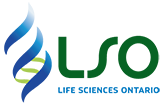On Wednesday, December 4th is the 10th Annual Life Sciences Policy Forum, covering different approaches to accelerating and strategizing ways to improve Ontario’s life sciences sector. This forum is hosted by Life Sciences Ontario (LSO), a member-funded, not-for-profit organization advancing Ontario life sciences through advocacy and policy work, educational and networking events, and support services for our sector. The event includes a variety of speakers from different backgrounds in order to tackle and discuss issues and topics.
Discussion topics at the forum include: policy directions and priorities in the life sciences sector, the concerns of sharing and distributing big data in Ontario that could unlock opportunities for research and development for patient care, as well as the rapid development of technology, such as artificial intelligence, and ways to implement those technologies through public policies, will be discussed.
To take a deeper dive into these topics, Xtalks spoke with Dan Sinai, the past chairman of Compute Ontario, and current senior innovation leader at IBM Canada Research and Development Centre.* He is also one of the panelists at this year’s LSO event. We spoke about the issues in unlocking the opportunities that big data could provide our society today.
What is Big Data?
According to The Office of the Information and Privacy Commissioner of Ontario (IPC), the term big data usually refers to “the combined use of a number of advancements in computing and technology” that include “new sources of personal information, virtually unlimited capacity to store data, improved record linkage techniques, and computer programs that can learn from and make predictions on data.”
Using big data can be seen as an important tool in reshaping and improving services across the province. This includes the changes it can make to healthcare. Big data can be used to analyze and find correlations in disease outbreaks and identify contributing factors, for example.
Distributing big data can be seen as something very beneficial to society, however controversies in conversation arise when discussing the idea of privacy, fairness and ethical concerns, and using people’s health information for distribution in order to further study the data.
Ontario’s Privacy Laws
The Freedom of Information and Protection of Privacy Act (FIPPA) and the Municipal Freedom of Information and Protection of Privacy Act (MFIPPA) are not compliant with information practices involved with big data in Ontario’s public-sector privacy laws.
When the laws were written, the possibility of distributing and studying data in this way was not considered. The FIPPA came into effect in 1988, before the World Wide Web was invented. The protections include ensuring that “the collection of personal information must be ‘necessary,’ secondary uses are restricted, and information sharing is limited.”
Conversation with a Big Data Expert
Xtalks: Ontario has a lot of health data that’s gathered from various facilities around the province. What are your opinions on the idea of using this data in order to further research and studies?
DS: I think it’s absolutely critical. Over the years I’ve been working with the people who are the custodians of the data – that would be the universities, hospitals, and clinical practices — and I think there’s three things that using data can do for Ontario, and certainly the patient population.

I think the first and foremost is this idea that data provides connections and relationships. It unlocks connections between diseases and potential cures. One thing I’ve seen over and over again is this idea that if you could connect data in one area — let’s say cancer — that could be related to something else, you see an instant impact for it. One of the things that we really need in Ontario is to do a better job of connecting disparate data. We have all this data, but it’s not connected.
Personalization is this idea that people talk about, and there’s a big buzzword around the personalization of healthcare and health outcomes, but it’s so true. This is the data that comes from genetic marking and biomarkers. This is the future of healthcare. The data will drive this idea that one cure doesn’t fit all, and that sometimes you need to have things that are more personalized.
The data that we have in Ontario really will drive innovation of new technologies, and new cures and more, that using data platforms, analytics, artificial intelligence, machine learning, high-performance computing, and more will drive innovation in two ways. One, it will provide a validation of technologies… and the second thing is, which I think is really important, in scale, is that in order to really be competitive on a global scale and to bring something to commercialization, you need to work at a data scale that’s big enough.
Xtalks: What are your opinions about the privacy of patients, which is one of the big controversies and limitations to spreading healthcare information as privacy of patients is compromised?
DS: There are a number of European countries where they’ve crossed this hurdle of private citation and actually give ownership of the data to the patient. I think that privacy starts with consent…it’s just the idea that if I consent for my data to be used for a particular purpose then that data should be allowed to be used.
Xtalks: Any additional comments?
DS: I think one of the things that people have to understand is that data is absolutely vital to what you would call evidence-based medicine. Evidence-based medicine is based on data and that leads to proper assessments of disease and challenges. I think the most important thing is that we use data to actually inform policy and programs and practice change and we don’t just simply rely on gut.
It’s a fascinating topic that we haven’t yet been able to tackle, and we talk about a lot.
*Dan Sinai wants to emphasize that the conversation we had were opinions made from his experience and beliefs, and do not reflect the opinion of the company, IBM

Life Sciences Ontario (LSO) is a member-funded, not-for-profit organization with a legacy of more than 25 years advancing the success of Ontario’s life sciences sector. LSO collaborates with governments, academia, industry, and other life science organizations in Ontario and across Canada to promote and encourage commercial success throughout the sector. The organization provides a wide range of networking and educational events, and operates a mentorship program that is helping to develop highly-skilled talent and build new business opportunities for the life sciences sector. LSO is an effective conduit for delivering policy options to governments, and is dedicated to promoting Ontario’s life sciences sector internationally












Join or login to leave a comment
JOIN LOGIN